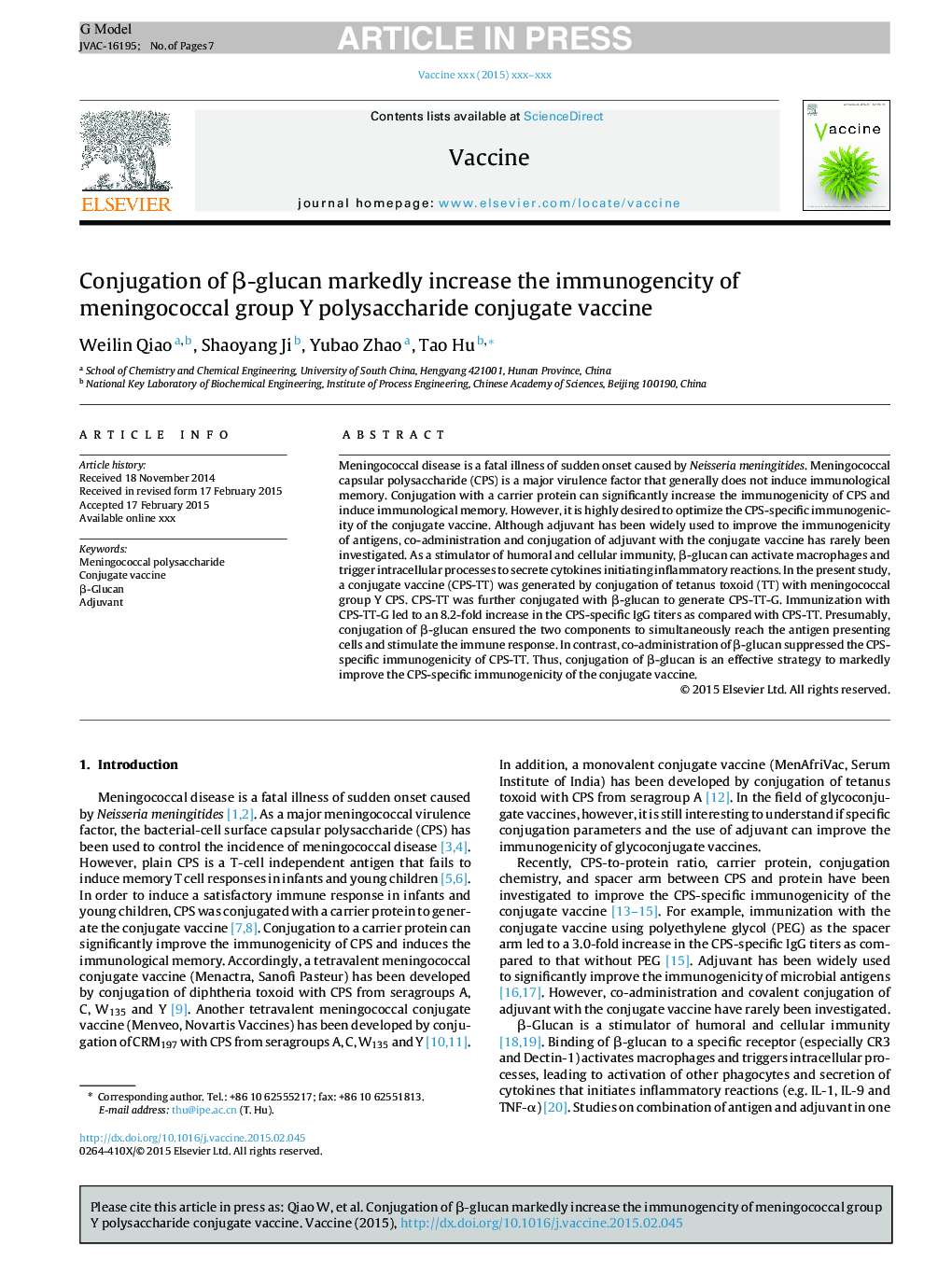| Article ID | Journal | Published Year | Pages | File Type |
|---|---|---|---|---|
| 10963668 | Vaccine | 2015 | 7 Pages |
Abstract
Meningococcal disease is a fatal illness of sudden onset caused by Neisseria meningitides. Meningococcal capsular polysaccharide (CPS) is a major virulence factor that generally does not induce immunological memory. Conjugation with a carrier protein can significantly increase the immunogenicity of CPS and induce immunological memory. However, it is highly desired to optimize the CPS-specific immunogenicity of the conjugate vaccine. Although adjuvant has been widely used to improve the immunogenicity of antigens, co-administration and conjugation of adjuvant with the conjugate vaccine has rarely been investigated. As a stimulator of humoral and cellular immunity, β-glucan can activate macrophages and trigger intracellular processes to secrete cytokines initiating inflammatory reactions. In the present study, a conjugate vaccine (CPS-TT) was generated by conjugation of tetanus toxoid (TT) with meningococcal group Y CPS. CPS-TT was further conjugated with β-glucan to generate CPS-TT-G. Immunization with CPS-TT-G led to an 8.2-fold increase in the CPS-specific IgG titers as compared with CPS-TT. Presumably, conjugation of β-glucan ensured the two components to simultaneously reach the antigen presenting cells and stimulate the immune response. In contrast, co-administration of β-glucan suppressed the CPS-specific immunogenicity of CPS-TT. Thus, conjugation of β-glucan is an effective strategy to markedly improve the CPS-specific immunogenicity of the conjugate vaccine.
Keywords
Related Topics
Life Sciences
Immunology and Microbiology
Immunology
Authors
Weilin Qiao, Shaoyang Ji, Yubao Zhao, Tao Hu,
